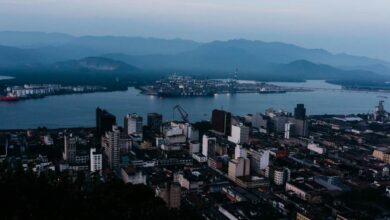What’s next for El Salvador after denying political recognition to Taiwan?
Trade relations will be maintained despite the rupture of diplomatic relations, but not without a warning and some uncertainty
On August 21, El Salvador became the third Latin American country (along with the Dominican Republic and Panama) to deny political recognition to Taiwan and to recognize this territory as part of China. According to the Taiwanese government, this action was caused as a result of its refusal to invest 27,000 million UDS in El Salvador for the development of the Port of the Union and the presidential elections to be held next February.
Leer en español: ¿Qué sigue para El Salvador después de negar el reconocimiento a Taiwan?
According to the risk measurement agency Moody's, with this action El Salvador expanded its commercial opportunities , since "El Salvador could have greater infrastructure financing through the One Belt initiative, one Road (One belt, one road) China, a positive credit for the Central American country, since government spending has been restricted in recent years as a result of tense public finances."
Likewise, the newspaper Europa Press points out that "El Salvador expects its economy to receive a boost after breaking diplomatic relations with Taiwan" because of statements by Salvadoran presidential spokesman Roberto Lorenzana, who stated that the objectives behind the decision were the development of the economy and attraction of investments. Lorenzana said that "fundamentally it is an interest to bet on the growth of our country with one of the most prosperous economies in the world."
You may also be interested: Paraguay and Taiwan: An unlikely but fruitful relationship
With this purpose in mind, the Minister of Economy, Luz Estrella Rodríguez, plans a meeting with Salvadoran businessmen who trade with Taiwan to explain how commercial transactions with that country will take place after having broken diplomatic relations. This is due to the fact that El Salvador and Taiwan maintain a Free Trade Agreement that allows exports from El Salvador for an order of USD 53 million. In addition, according to the newspaper La Page, the annual exports to Taiwan represent between 40 and 60 million USD for El Salvador.
This is why Rodriguez said that "We are calling the businessmen who were doing trade with Taiwan to explain that fortunately, for now, there is no one to worry about, because the Treaty, once it is denounced, has not yet been the moment It has six months of space and in those six months we make that transition."
Likewise, the minister plans a meeting with Taiwanese investors in order to assure them that trade relations will continue despite the rupture of diplomatic relations.
The reaction of the USA
Since last month when the trade war between China and the US was made official due to an excessive increase in tariffs, Jean Manes, the US ambassador in El Salvador, said that "an investment from China will not benefit the Salvadorans." Also, she said she was worried about the "economic and military expansion" that China was exercising in the region.
Manes also said that there was a possibility that the Chinese would not comply with their projects in the region and, given the possible Chinese investment in the port of La Union, he assured that more reliable partners should be sought. As quoted by the newspaper The graphic press "The Union is one of the areas where most Salvadorans migrate irregularly to the United States and that is why the North American country is interested in a good investor for this department."
Once the decision of El Salvador was made, the US government announced that it is reassessing its relationship with the Central American country, because according to the White House, this decision "affects not only El Salvador, but also the welfare of the economy and security. of the entire region of the Americas." Donald Trump also said that countries seeking to use China to foster short-term economic growth "may be disappointed in the long term." And he noted that "all over the world, governments are realizing that China's economic incentives facilitate economic dependence and domination, not work together."
LatinAmerican Post | Sofía Carreño
Translated from: '¿Qué sigue para El Salvador después de negar el reconocimiento a Taiwan?'






